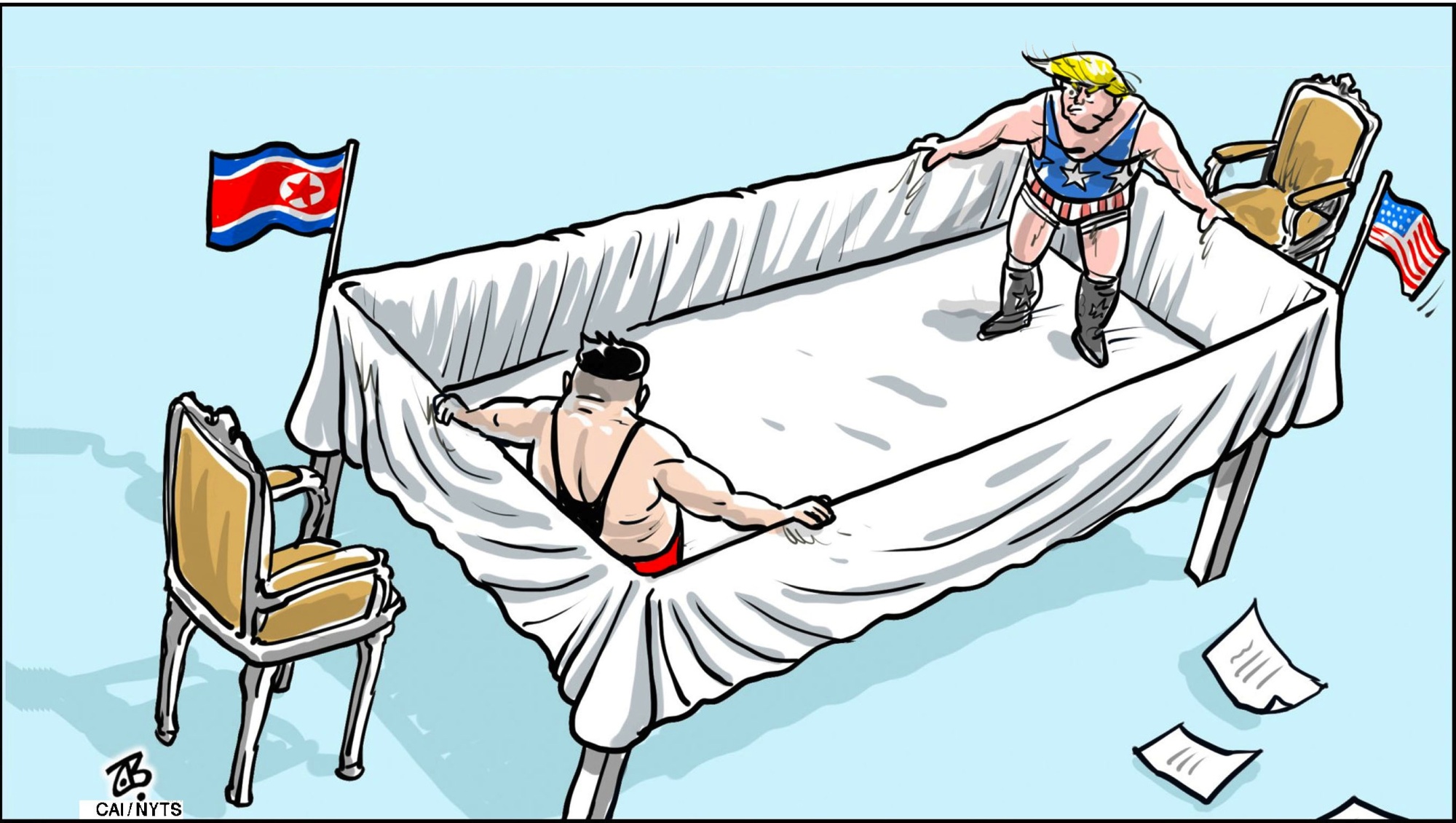With the acrobatic and unconventional interactions between U.S. President Donald Trump and North Korean leader Kim Jong Un, the world's attention is now fixed on the prospect of North Korea's nuclear disarmament.
The success or failure of the coming negotiation process remains to be seen, particularly given the two top leaders' seemingly unpredictable egos. Yet, whichever way it ends, the postwar international order of the Asia-Pacific region will eventually collapse or disintegrate into a chain of ensuing strategic interactions across the region. Most likely this will be manifested as the "Japan question" due to the country's role as a linchpin within the regionwide U.S. hub-and-spokes system of bilateral alliances. Why is that?
A successful outcome to the negotiations means the North's nuclear disarmament in exchange for U.S. assurance of the Kim regime's survival. This involves the replacement of the 1953 Korean Armistice Agreement with a peace treaty, depriving the U.S. military presence in South Korea of its raison d'etre. The change will naturally lead to a withdrawal of U.S. forces and an eventual termination of the existing U.S.-South Korea alliance.

















With your current subscription plan you can comment on stories. However, before writing your first comment, please create a display name in the Profile section of your subscriber account page.